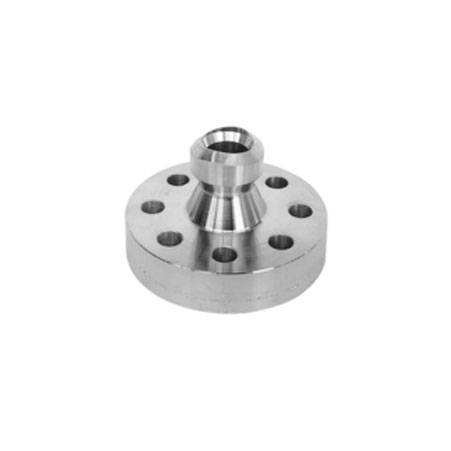Stainless Steel Flange Outlets provide a dependable, safe, and efficient solution for branching pipe connections across various industries. With a broad range of designs, materials, and grades, they cater to the specific requirements of high-performance piping systems, ensuring operational reliability, reduced maintenance costs, and longevity.
Stainless Steel Flange Outlets are one of the most widely used piping components in modern industrial applications, offering a reliable way to branch off from a larger run of pipe to create smaller outlets while maintaining structural integrity and pressure handling. These flange outlets, also known as branch connections or flanged outlets, are designed for easy installation and maintenance, ensuring leak-free performance in high-pressure, high-temperature, and corrosive environments.
Common Types of Stainless Steel Flange Outlets
Stainless steel flange outlets are available in various designs to suit different applications, including:
- Welding Neck Flange Outlet – Suitable for high-pressure and high-temperature services; offers strong and secure weld connections.
- Slip-On Flange Outlet – Easy to install and ideal for low-pressure applications.
- Socket Weld Flange Outlet – Designed for small-diameter, high-pressure piping systems.
- Blind Flange Outlet – Used to close the ends of piping systems or pressure vessel openings.
- Threaded Flange Outlet – Enables quick installation without welding; suitable for low-pressure systems.
- Lap Joint Flange Outlet – Used with stub ends for systems requiring frequent dismantling.
Materials and Grades of Stainless Steel Flange Outlets
Stainless steel flange outlets are manufactured in a wide range of materials and grades to meet the specific requirements of different industries:
- Austenitic Stainless Steel: Grades like 304, 304L, 316, 316L, 321, 347 – offer excellent corrosion resistance and weldability.
- Ferritic Stainless Steel: Grades such as 409, 410, 430 – cost-effective and suitable for mildly corrosive environments.
- Martensitic Stainless Steel: 410, 420, 431 – known for high strength and hardness.
- Duplex and Super Duplex Stainless Steel: 2205, 2507 – provide superior strength and resistance to stress corrosion cracking.
- Precipitation Hardening Stainless Steel: 17-4 PH – combines high strength and corrosion resistance.
Each grade is selected based on factors like temperature range, pressure rating, and exposure to corrosive substances.
Advantages of Stainless Steel Flange Outlets
- Corrosion Resistance – Stainless steel flange outlets withstand harsh environments, including chemical exposure and saline water.
- Durability – High strength and long service life even under extreme operating conditions.
- Versatility – Available in multiple designs, sizes, pressure classes, and face types (RF, RTJ, FF).
- Ease of Installation – Quick to weld and compatible with a wide variety of piping systems.
- Cost-Effective – Reduced downtime and maintenance costs over the product's lifetime.
Applications of Stainless Steel Flange Outlets
These outlets are extensively used in industries that require reliable and high-performance piping systems, such as:
- Oil & Gas Pipelines
- Petrochemical Plants
- Power Generation Systems
- Chemical Processing Units
- Pharmaceutical Manufacturing
- Marine & Offshore Engineering
- Water Treatment Facilities
- Food & Beverage Processing
Choosing the Right Stainless Steel Flange Outlet
When selecting a flange outlet, consider:
- Pipe Size and Schedule – Ensure compatibility with the run pipe.
- Operating Pressure and Temperature – Match the pressure class and material grade.
- Corrosive Environment – Choose the correct stainless steel grade to avoid premature failure.
- Standards and Certifications – Opt for flange outlets manufactured to international standards such as ASTM, ASME, ANSI, and DIN.
